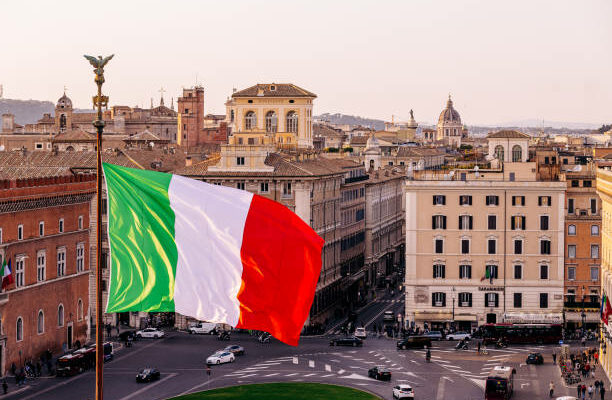Obtaining an Italian passport is a goal for many foreigners due to the numerous benefits it offers, including visa-free travel across 190+ countries, access to the European Union (EU), and the opportunity to live, work, and study anywhere in the EU without restrictions.
If you’re wondering how foreigners can get an Italian passport , this guide will walk you through the legal pathways, eligibility requirements, application process, and common obstacles. Whether you have Italian ancestry, are married to an Italian citizen, or have lived in Italy for years, there may be a path that leads to Italian citizenship — and ultimately, your Italian passport.
🇮🇹 Why Obtain an Italian Passport?
Before diving into how to obtain one, let’s quickly explore why an Italian passport is valuable:
- Visa-Free Travel : Italian passport holders can travel to over 190 countries without a visa, including the U.S., Canada, and Japan.
- EU Citizenship : Becomes an EU citizen, granting rights to live, work, and study in any EU country.
- Strong Healthcare & Education : Access to high-quality public services in Italy and other EU nations.
- Cultural & Economic Opportunities : Enjoy Italy’s rich culture, lifestyle, and business environment.
Now, let’s explore the different ways foreigners can qualify for Italian citizenship and eventually receive their Italian passport.
🧾 Pathways to Italian Citizenship for Foreigners
Italy recognizes several legal routes to citizenship. The most common include:
1. Citizenship by Residency (Jus Soli Cives)
Foreign nationals who have legally resided in Italy for a continuous period can apply for citizenship by residency.
Requirements:
- Legal residency in Italy for at least 10 years (reduced to 5 years for refugees and stateless persons).
- No criminal record .
- Financial self-sufficiency (proof of stable income).
- Language proficiency : B1 level in Italian (CEFR).
Benefits:
- No need for Italian ancestry.
- Open to citizens from all nationalities.
Obstacles:
- Lengthy residency requirement.
- Language test must be taken in person at approved institutions.
2. Citizenship by Marriage
Marriage to an Italian citizen can expedite the citizenship process.
Requirements:
- Married to an Italian citizen for at least 3 years .
- Valid marriage certificate recognized in Italy.
- Legal residency in Italy during the marriage.
- No criminal record.
- Proof of integration into Italian society.
Benefits:
- Faster route than residency-based citizenship.
- Spouse can apply even if living abroad under certain conditions.
Obstacles:
- Must maintain the marital relationship throughout the process.
- Divorce or annulment could affect the application.
3. Citizenship by Descent (Jus Sanguinis)
This is the fastest and most straightforward path for those with Italian heritage.
Requirements:
- At least one ancestor was an Italian citizen.
- Unbroken chain of citizenship (no renunciations).
- Birth records showing direct lineage.
- Documents translated and authenticated.
Benefits:
- No language or residency requirement.
- Can be applied for from abroad in many cases.
Obstacles:
- Complicated bureaucracy and long processing times.
- Need for accurate documentation spanning multiple generations.
4. Citizenship by Adoption
Adopted children under the age of 18 can acquire Italian citizenship if adopted by an Italian citizen.
Requirements:
- Adoption finalized by Italian authorities.
- Child must not have turned 18 at the time of adoption.
- Adoption must comply with international laws (e.g., Hague Convention).
5. Citizenship by Naturalization for Minor Children
Children under 18 who have been residents in Italy since the age of 10 can apply for citizenship upon turning 18.
Requirements:
- Continuous legal residence in Italy since age 10.
- Application must be submitted within one year of turning 18.
📄 Step-by-Step Guide to Applying for Italian Citizenship
While each pathway has its own nuances, here’s a general step-by-step process for applying for Italian citizenship:
Step 1: Determine Your Eligibility
Review which category applies to your situation: residency, marriage, descent, etc.
Step 2: Gather Required Documents
Common documents include:
- Birth certificates
- Marriage certificates
- Criminal record clearance
- Proof of legal residence
- Tax returns or employment proof
- Language certification (if required)
Step 3: Submit Your Application
Applications are typically submitted through:
- The Italian Ministry of Interior (Ministero dell’Interno)
- Local Municipal Office (Comune)
- Italian Embassy or Consulate (for applications from abroad)
Step 4: Wait for Approval
Processing times vary widely:
- Descent applications : 6 months to 3+ years
- Residency/marriage applications : 1–3 years
Step 5: Take the Oath of Allegiance
Once approved, applicants must swear an oath of allegiance to Italy.
Step 6: Apply for the Italian Passport
After receiving citizenship confirmation, applicants can apply for an Italian passport at the local police headquarters (Questura ) or Italian embassy.
💰 Costs Involved in Getting an Italian Passport
The total cost depends on the type of application and location:
Note: Legal fees for assistance from immigration lawyers or genealogists can range from €1,000 to €5,000 depending on complexity.
⚠️ Common Obstacles & Tips to Avoid Delays
1. Incomplete Documentation
Ensure all documents are certified, translated, and apostilled where necessary.
2. Name Changes or Variations
Minor discrepancies between names on documents can delay the process. Use consistent spellings.
3. Long Processing Times
Start early and follow up regularly with the responsible office.
4. Language Barriers
Hire a professional translator or use official translation services.
5. Renunciation Issues
If your ancestor renounced Italian citizenship before your parent was born, you may not qualify.
✅ Final Thoughts: Is It Worth Getting an Italian Passport?
For many, obtaining an Italian passport is a life-changing opportunity. Whether you’re reconnecting with your roots, planning a future in Europe, or seeking global mobility, Italian citizenship opens doors that few other passports can match.
With careful preparation, patience, and attention to detail, foreigners can successfully navigate the process and become proud holders of an Italian passport.
🔍 Frequently Asked Questions (FAQs)
Q1: Can I get an Italian passport if my grandfather was Italian?
Yes, if your grandfather was an Italian citizen and did not renounce his citizenship before your parent was born, you may qualify through citizenship by descent .
Q2: Do I need to speak Italian to get an Italian passport?
Only if you’re applying via residency or marriage . Descent applicants generally do not need to prove language skills.
Q3: How long does it take to get an Italian passport after citizenship approval?
You can apply immediately after receiving your citizenship decree , and the passport should arrive within 2–4 weeks .
Q4: Does Italy allow dual citizenship?
Yes, Italy allows dual citizenship , so you don’t have to give up your original nationality.
Q5: Can I apply for Italian citizenship while living outside Italy?
Yes, especially for descent-based applications , you can apply through your local Italian consulate .
📢 Ready to Start Your Journey?
Whether you’re applying through ancestry, marriage, or residency, getting an Italian passport is a rewarding but complex journey. With the right guidance and resources, you’ll soon be holding one of the world’s most powerful passports in your hands.
Start today — your Italian dream might be closer than you think.


